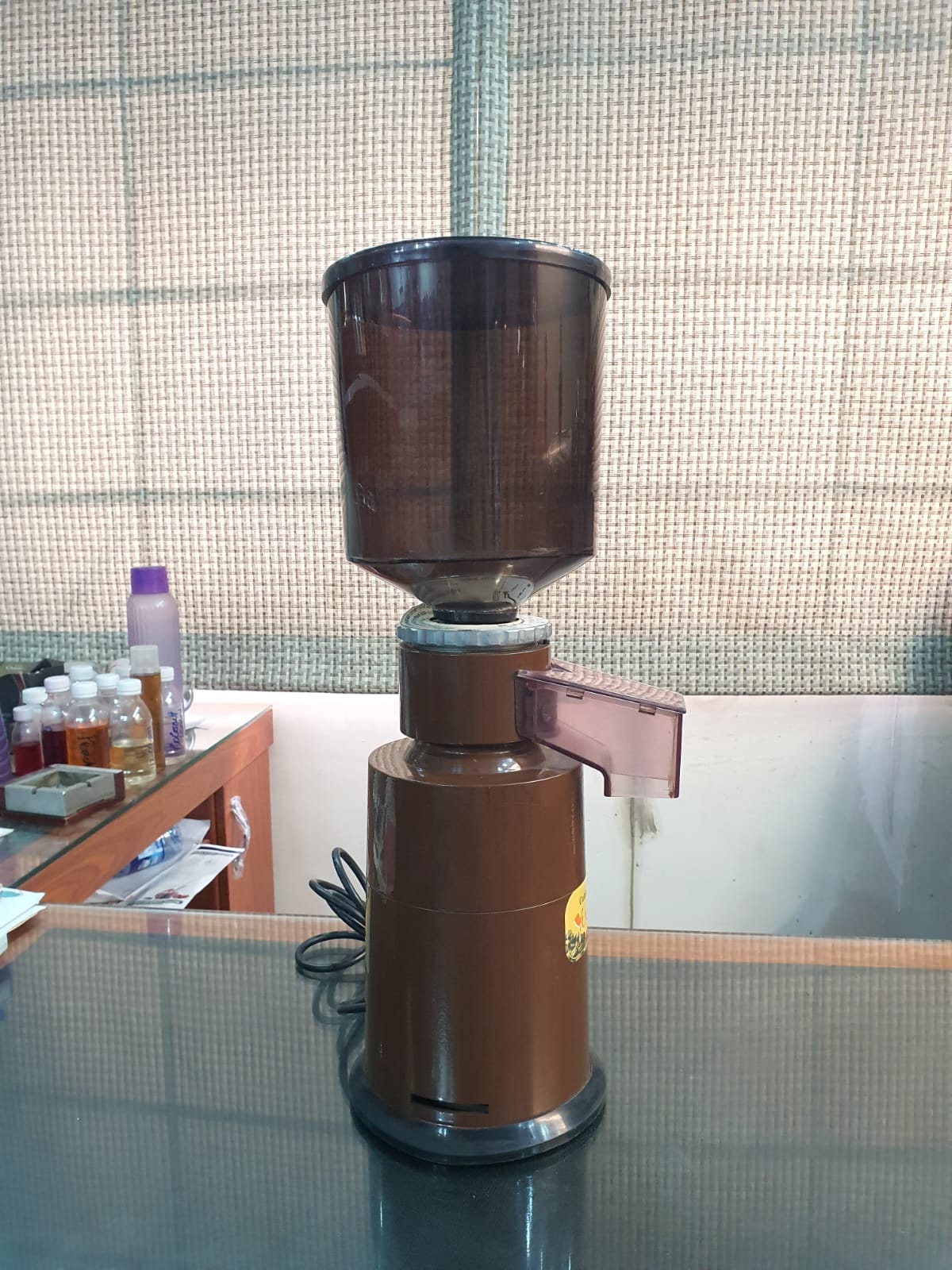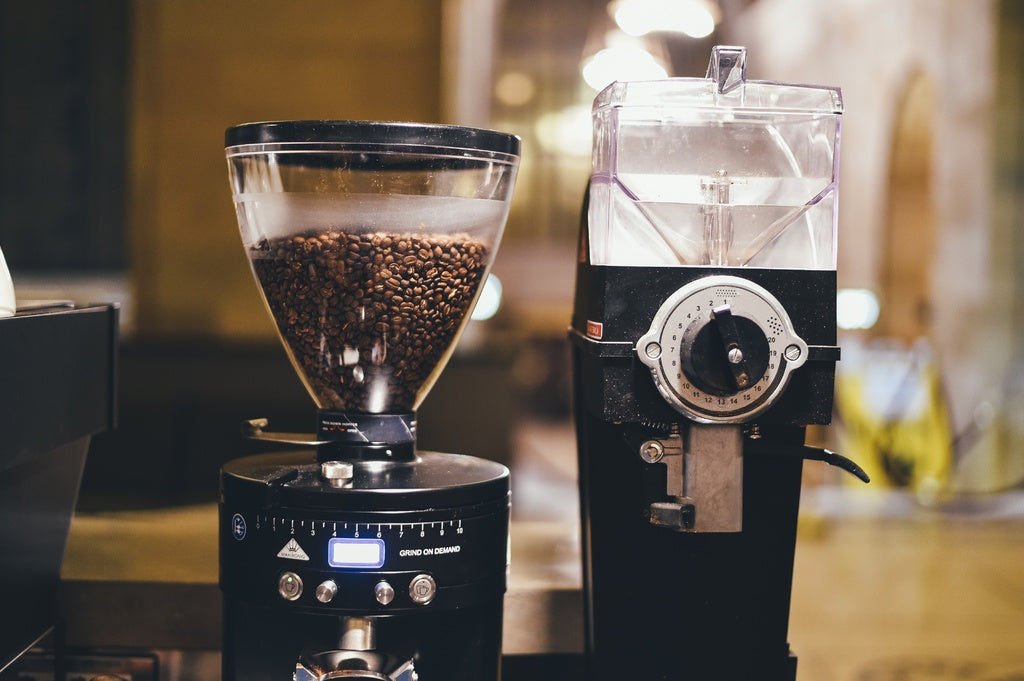Leading Functions to Search For in an Industrial Coffee Mill
When examining an industrial coffee mill, it is important to recognize essential functions that influence both efficiency and long life. Consistency in work dimension is critical for optimum extraction, while flexible grinding rate permits for a balance in between effectiveness and quality.
Grind Dimension Uniformity
While various factors can affect the top quality of made coffee, grind size uniformity stays extremely important in accomplishing ideal removal. The harmony of coffee grounds straight influences the developing process, as unequal particle sizes can cause over-extraction or under-extraction. This disparity causes unbalanced flavors, where certain notes might be subduing while others are silenced.
Industrial coffee mills are developed to give a high degree of precision, typically utilizing burr grinding mechanisms to guarantee a consistent grind dimension. Unlike blade grinders, which can produce a mix of fine and rugged fragments, burr grinders crush the beans in between two surfaces, permitting better control over grind dimension. This uniformity is crucial across different brewing techniques, whether espresso, French press, or pour-over, as each technique requires details grind sizes for optimum flavor extraction.
Additionally, consistency in work dimension adds to the general efficiency of the brewing process. A consistent grind permits even water circulation, lowering the threat of boosting and transporting extraction performance. In recap, spending in a commercial coffee mill with a concentrate on grind dimension uniformity is important for accomplishing top quality coffee with preferable flavor profiles.
Grinding Rate
Grinding speed plays an important function in the overall efficiency of commercial coffee mills, straight affecting both the top quality of the grind and the efficiency of the procedure. Industrial Coffee Grinder. Greater grinding speeds can dramatically boost the throughput, making it feasible to refine larger quantities of coffee beans in a shorter period. This is especially essential for organizations that rely on high-volume manufacturing, such as coffee roasteries and cafes
Nevertheless, while speed is important, it is equally crucial to balance it with the top quality of the work. Excessively high grinding speeds can generate warm, which may adversely influence the taste profile of the coffee by causing the beans to shed important oils and scents. A mill that uses adjustable speed setups can provide optimal flexibility, enabling operators to customize the grinding procedure according to particular requirements.
Furthermore, the grinding rate ought to correspond to ensure harmony in the grind size, more adding to the general preference and brewing quality of the coffee. In recap, assessing grinding speed is essential for picking an industrial coffee mill that satisfies both productivity and high quality demands.
Build High Quality and Longevity
The efficiency of a commercial coffee mill is not only determined by its grinding rate; build top quality and longevity are just as crucial factors that influence long-term performance and dependability. A sound mill will certainly hold up against the roughness of everyday usage, making it an audio investment for any commercial operation.

Resilience additionally encompasses the mill's motor and internal systems. Industrial coffee grinders must be outfitted with heavy-duty electric motors capable of maintaining prolonged procedure without overheating. Robust burrs are important, as they directly impact the quality of the grind and add to the overall durability of the maker.

Ease of Usage and Upkeep
Regularly focusing on ease of use and upkeep can considerably improve the operational efficiency of an industrial coffee mill. Straightforward look these up attributes such as intuitive controls and clear labeling are vital for reducing downtime and making certain that operators can quickly adapt to the tools. An ergonomic layout, including height-adjustable hoppers and easily accessible grinding chambers, permits comfortable procedure and promotes the loading and discharging of coffee beans.
Moreover, simplicity of upkeep is crucial for extending the life expectancy of the grinder. Equipment with removable components and elements made for quick cleaning can streamline upkeep tasks, minimizing the moment Homepage invested in routine maintenance - Industrial Coffee Grinder. Search for grinders that incorporate self-cleaning mechanisms or require marginal disassembly, as these attributes can conserve beneficial labor hours
In addition, clear upkeep schedules and documents are important. Mills that include comprehensive user handbooks detailing maintenance procedures can help operators abide by best techniques, making certain constant efficiency and quality. By buying a commercial coffee mill that stresses simplicity of use and maintenance, organizations can improve efficiency, reduce operational expenses, and maintain the high standards anticipated in coffee manufacturing.


Noise Level Reduction
When choosing an industrial coffee grinder, sound level decrease is a crucial aspect that can substantially affect the work environment. High noise degrees can result in worker tiredness, lowered focus, and prospective hearing damage over time, making it necessary to select a mill made with sound-dampening functions.
Look for mills that incorporate advanced noise-reduction innovations, such as sound-insulated housings and vibration-dampening places. These attributes aid to decrease functional noises, producing a quieter ambience helpful to efficiency. Industrial Coffee Grinder. Additionally, picking mills equipped with low-noise electric motors can additionally improve sound decrease, ensuring an extra pleasurable working atmosphere
Think about the mill's overall layout. The placement of the mill within the work area need to be critical.
Ultimately, investing in a coffee mill that prioritizes noise decrease not just look at this site boosts the convenience of workers however additionally lines up with a dedication to maintaining a effective and secure job setting. This focus to information can bring about boosted worker fulfillment and retention.
Verdict
In summary, selecting a commercial coffee mill necessitates mindful consideration of a number of key attributes. Grind dimension uniformity is important for optimum extraction, while flexible grinding rate helps with an equilibrium in between throughput and quality. The choice of products directly influences build top quality and longevity, making certain long life in a requiring environment. Ease of usage and maintenance, along with noise reduction modern technologies, enhance operational performance and convenience. Prioritizing these functions will result in a more efficient grinding solution.
Industrial coffee mills are made to offer a high degree of accuracy, often using burr grinding systems to make certain a consistent grind size. Unlike blade mills, which can create a mix of fine and coarse fragments, burr grinders squash the beans between 2 surface areas, enabling for far better control over grind dimension. In recap, investing in a commercial coffee grinder with a focus on grind dimension uniformity is essential for achieving high-grade coffee with desirable taste profiles.
Grinding rate plays a vital duty in the overall performance of industrial coffee grinders, straight impacting both the quality of the grind and the effectiveness of the procedure. A grinder that provides adjustable speed setups can provide optimal adaptability, enabling operators to customize the grinding procedure according to particular demands.
Comments on “Industrial Coffee Grinder: A Complete Guide for Large-Scale Brewing”